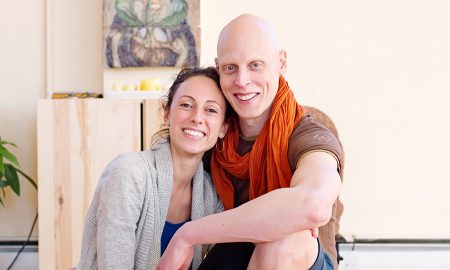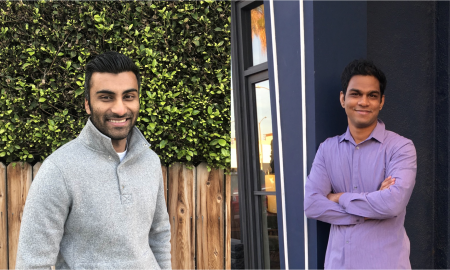

Today we’d like to introduce you to Megan Lietz.
Megan, please share your story with us. How did you get to where you are today?
I’m a White girl from the country. If you had told me 10 years ago that I’d be launching a racial justice ministry in the city, I would have laughed you out of town.
Born and raised in the small, rural town of Shutesbury, MA, I didn’t have much exposure to diversity. While this changed somewhat when I attended a regional middle school, the messages of “we’re all created equal” and “celebrate diversity” seemed like truisms to me. They didn’t have much meaning in the absence of substantive cross-racial relationships or conversations on power, privilege, and disparities.
My experiences began to change during my college years when I volunteered at East Coast International Church in Lynn, working with a performing arts program for teenagers. It was in this context that I got to know people of all different races and came to better see the messy, complex, dynamic, and beautiful realities of the city. It was in this context, that God took a county girl and made her heart beat for the city.
Seeking to get more involved in an urban context, I participated in Gordon College’s Boston Urban Semester, an urban immersion program that gave students the opportunity to live in, learn about, and have internships in the city. It was through this program that I began to intern at Abundant Life Church, a predominantly Black, Pentecostal congregation in Cambridge. What began as an internship eventually led to a staff position of 5 years where I served as the Church Administrator and volunteered in many capacities. It was through these experiences, that I came to see and wrestle with issues related to race, culture, power, privilege and identity.
This wrestling was done in conjunction with my time at Gordon Conwell’s Center for Urban Ministerial Education, their Boston campus that provides contextualized, urban education. While there, I focused my studies on exploring the biblical foundations of racial reconciliation (MDiv. ’14). Thereafter, I attended Boston University’s School of Theology (STM ’15) where I explored power dynamics in multiracial congregations. As I concluded my studies, I thought intentionally about how I could live out my faith in the area of racial justice. I’d seen fellow students attend protests, preach sermons, facilitate conversations and such, but I desired to find how I could use my unique skills and experiences to make a difference.
It is my deep faith in Jesus, my love for the Church, and the gross racial inequalities in our country that motivated me to launch RCCI. I believe that the Church has great potential to be an agent of racial reconciliation and in fact is called by God to continue his restorative work in the area of race relations. Unfortunately, the Church, especially the White church, has often disengaged or, at times, actively opposed, the work of racial healing. As a result, I want to use my privilege and experiences to create a space where Christians of all races can come together and collaborate to see change in the church’s engagement of racial justice. The Church has a lot of work to do, but it’s as a member of the Church, as someone who loves the Church, that I want to raise my voice and be an agent of change.
Today, my husband and daughter and I attend Abundant Life Church and are active members of the Dorchester community.
Great, so let’s dig a little deeper into the story – has it been an easy path overall and if not, what were the challenges you’ve had to overcome?
One of the struggles has been, and always will be, the self-work. The looking inside myself and wrestling with my own biases and blind spots, acknowledging how I’ve been impacted by my White privilege and the ways in which White culture has me bound. If we were to be honest with ourselves, even those of us trying to work towards a solution are pretty broken and ugly when we look inside. I recognize that if I’m asking other people to do their own self-work, I need to be willing to do this myself. I need to be able to come along side people, not just with vision and conviction, but with an appreciation and wisdom that comes from experience.
The greatest challenge is then taking what I’ve learned about myself and the world around me, and living out my convictions. I’m gonna be honest, I’ve written a lot of papers on racial reconciliation, justice, shalom… and I gotta say, relatively, that was the easy part. All the blood, sweat and tears, the late nights working full-time and putting myself through grad school, while that was by no means easy, it was somehow simpler, and seemed to require less thought and mindfulness than living it out in practice. To live out racial reconciliation requires self-awareness, intentionality, creativity and grit. It’s exhausting. There’s no auto-pilot. Just when we feel like we’ve gotten into the swing of things, the context changes again.
Please tell us about Race and Christian Community Initiative (A program of the Emmanuel Gospel Center).
The Race and Christian Community Initiative equips churches to engage well in issues related to race. We do this by meeting people where they are at, crafting customized roadmaps, and providing people with resources, support, and accountability to grow in their effective engagement of issues related to race. This could look like anything from hosting a workshop, facilitating a conversation, or helping connect people so mutual learning can take place. We work with congregations, host learning communities, and aim to work with such people for the long term – however long it takes to see genuine change.
At present, our current focus is working with White evangelicals. While there are a number of reasons for this, including the steep learning curve within this community, my engagement is personal. I was born and raised in the White evangelical tradition. I have a desire to come alongside my brothers and sisters and help them see, think, and act differently about issues related to race, just like others had (and still have!) to come alongside me. I don’t have all the answers, but I’ve come to realize that I know just enough to be able help others who are not as far along on the journey.
It’s important to note that our current focus on White evangelicals is just the beginning. Our long-term vision is to be able to offer services and support to people of all races and we are actively trying to develop a multi-racial team to make this a reality.
What sets us apart is twofold. First, as a Christian ministry, we come to the work of racial reconciliation with a spiritual lens. We see it not only as a social problem, but as a sin that breaks the heart of God. Furthermore, we believe that the many social responses to racism can be augmented if we bring our faith and faith practices into the process. As a result, we not only work on education, relationship development, and action as many social justice organizations do, but we engage with prayer, meditation, and a biblical lens. For example, we walk with churches to explore what the Bible has to say about justice and how it speaks to racial inequality today. Racial justice is not just a “liberal political issue,” it’s a biblical issue. The Church should use their faith and the tools it offers to continue God’s healing work in the world. While many churches, especially White evangelicals, have been hesitant to engage in this work, I’ve found that using Christian language, frameworks, and biblical foundations can help move congregations from fear and inaction to collaboration and change.
The second quality that sets us apart is the co-collaborative process through which RCCI took, and continues, to take shape. Over the last two years, the vision and programs of RCCI have been shaped by over 70 conversations with local leaders of different races, ages, genders, and faith traditions. As we pilot our services, and continue to develop the initiative, having it shaped by input from the community is a foundation of what we do.
What quality or characteristic do you feel is most important to your success?
As a ministry committed to racial reconciliation, our success must be defined by people of color. As a White person, my blinders and stake in the system make it such that I cannot objectively determine if real progress is being made. As a result, having systems, structures, and relationships in place that help RCCI stay accountable to people of color is key to our success.
Do you look back particularly fondly on any memories from childhood?
While it would be hard to choose a single memory, my best and warmest memories come from growing up with my cousins on my grandma’s land. Be it eating tomatoes out of the garden, tobogganing down grandma’s hill, or pretending we were hosts of the 6:00pm news, Grandma created a warm and loving environment where our hopes and imaginations could thrive. Though I now call the city my home and challenge some ways of being for White people, I have deep appreciation and experiential understanding of White, rural America. That was my first home and it will always be a part of me.
Contact Info:
- Address: The Race & Christian Community Initiative
A Program of the Emmanuel Gospel Center
2 San Juan St. Boston MA 02118 - Website: www.egc.org/race
- Phone: 617-262-4567
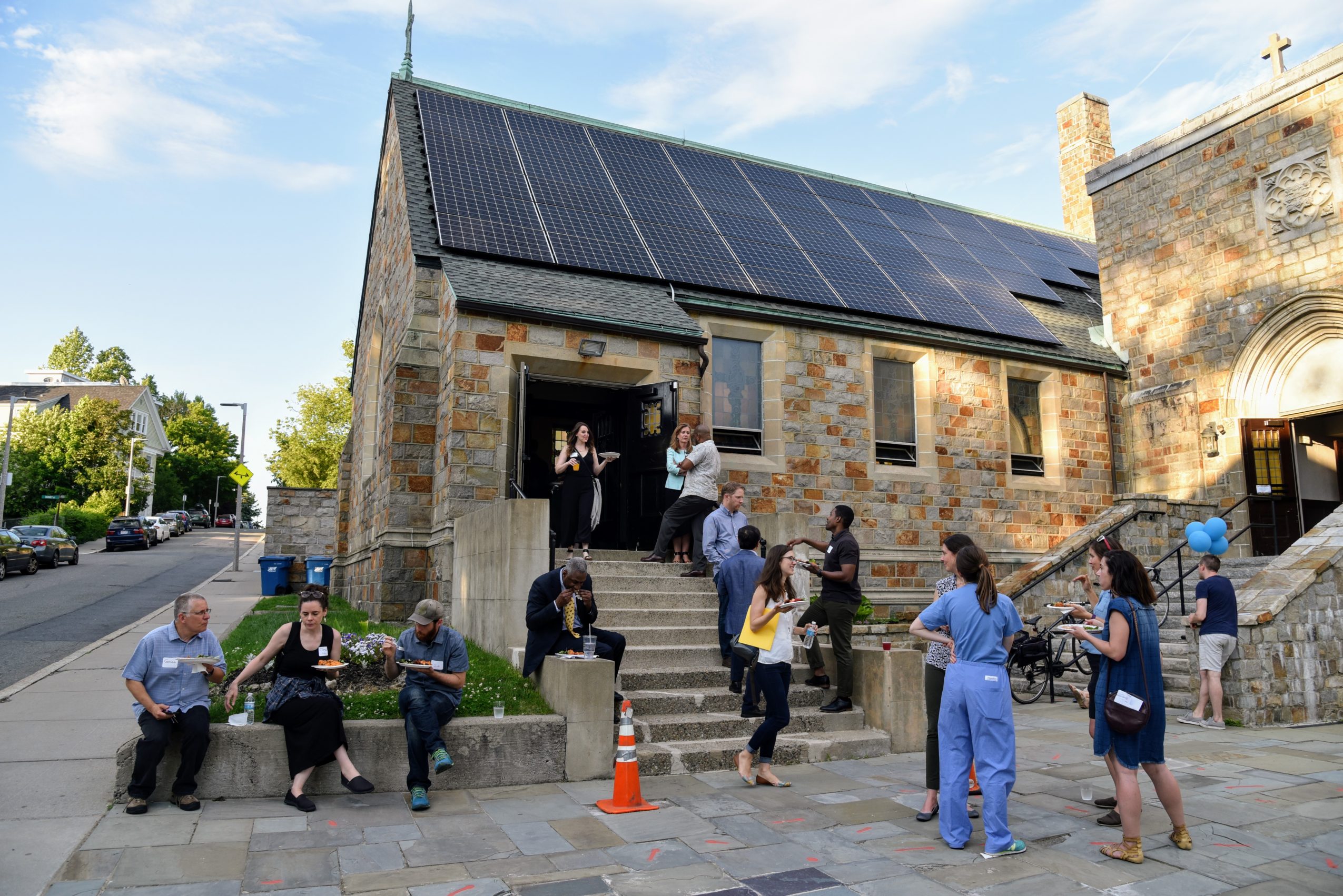
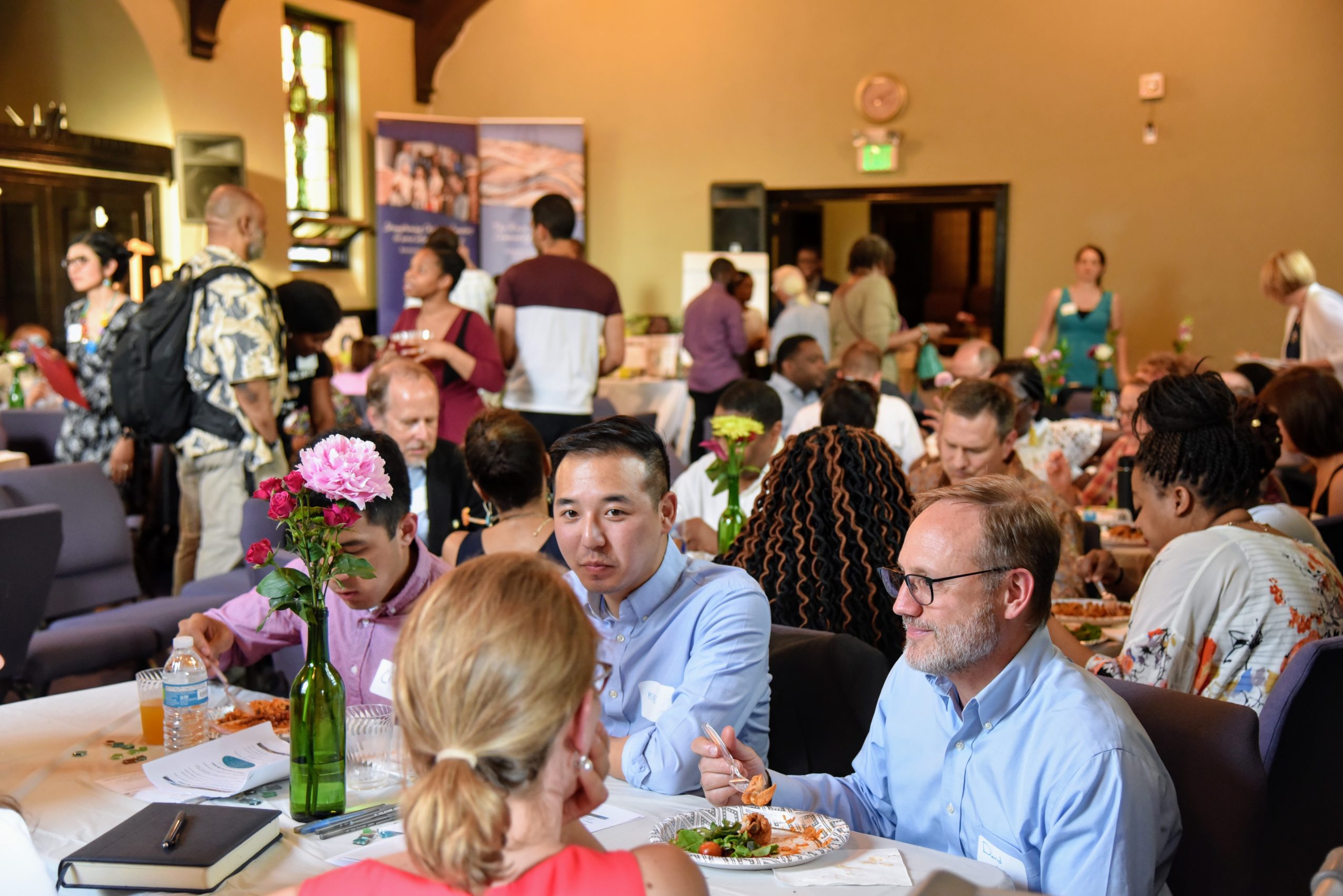


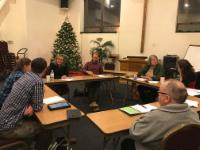
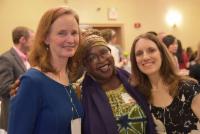
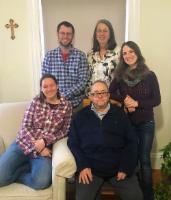
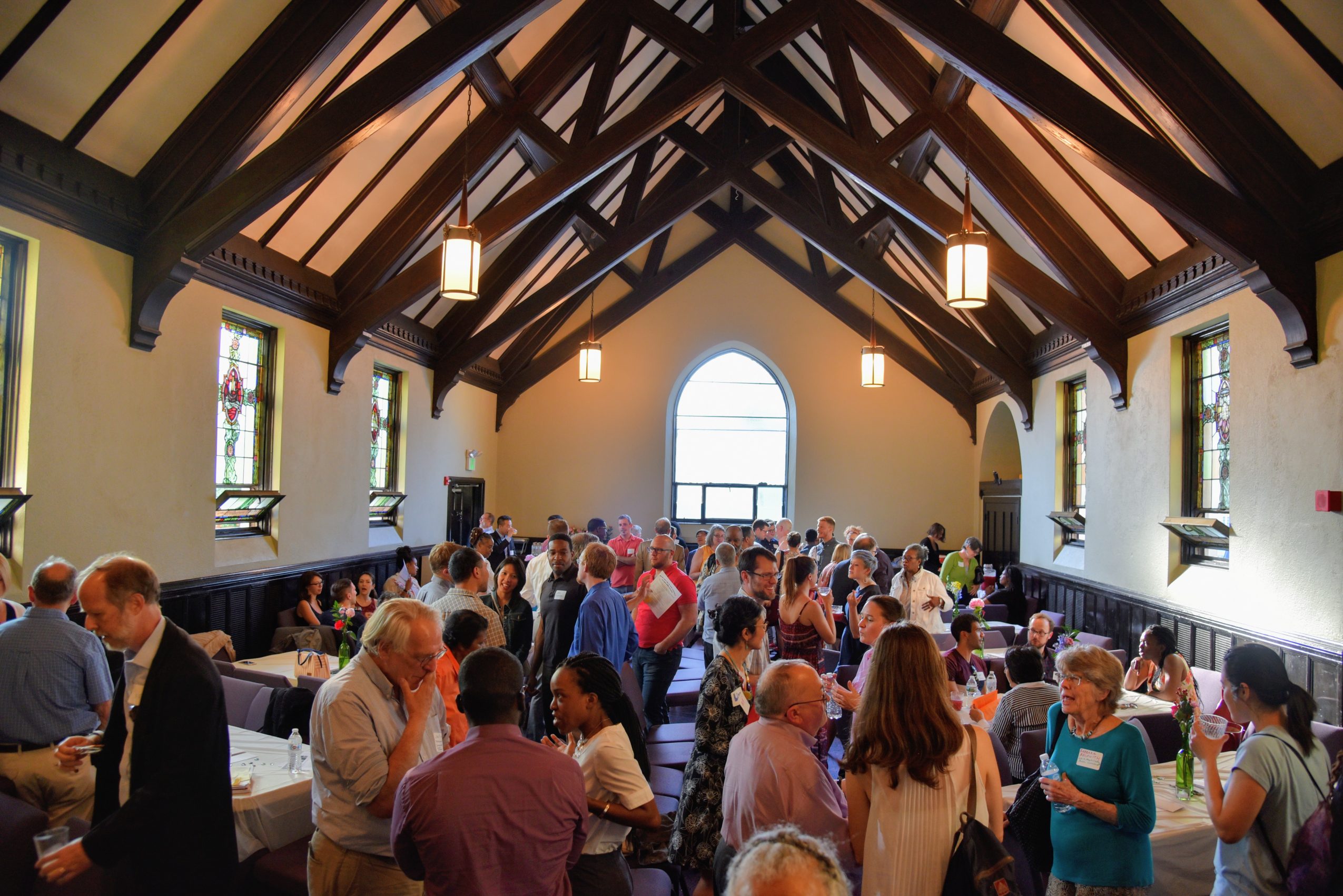
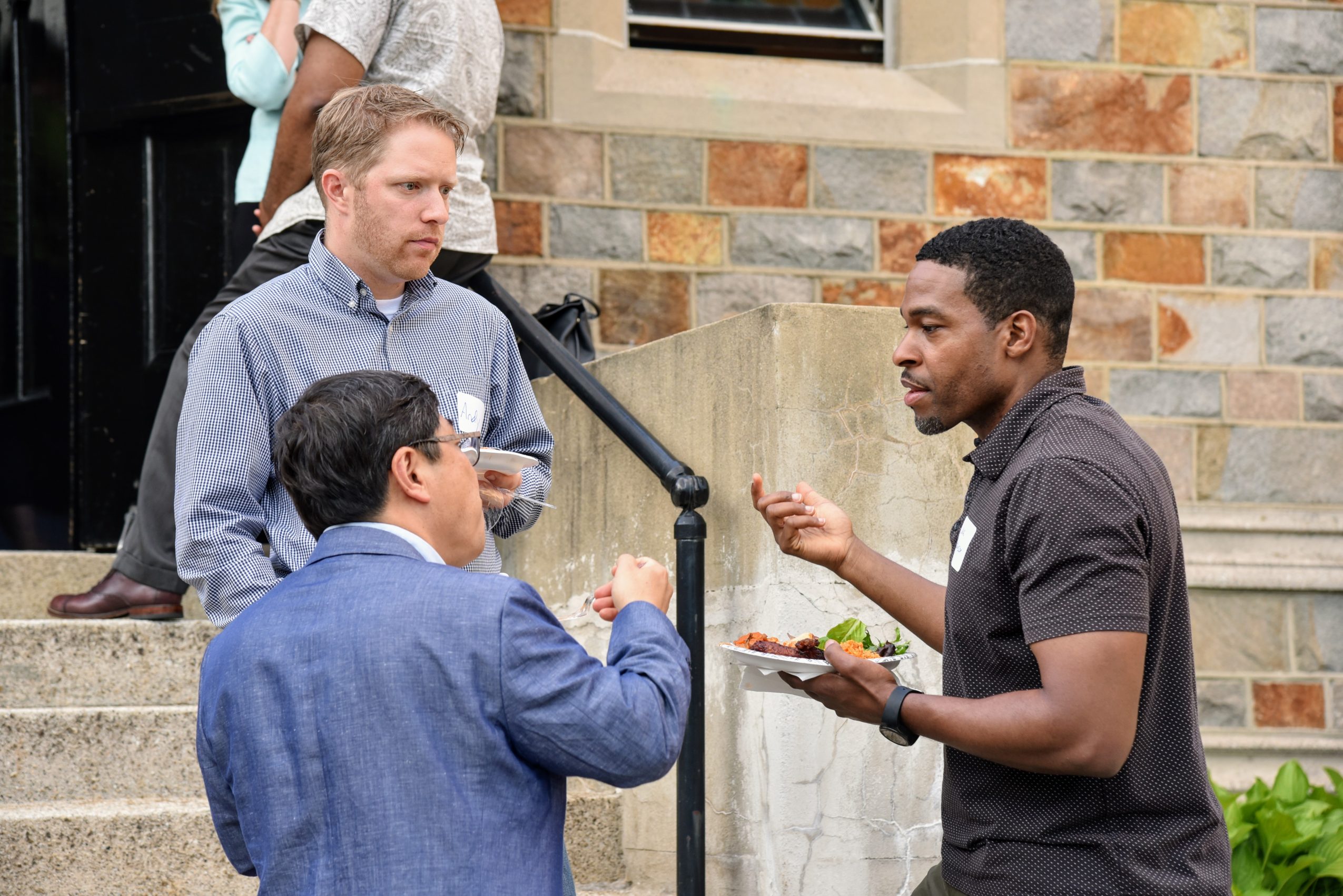
Image Credit:
Elijah Mickelson
Getting in touch: BostonVoyager is built on recommendations from the community; it’s how we uncover hidden gems, so if you know someone who deserves recognition please let us know here.













